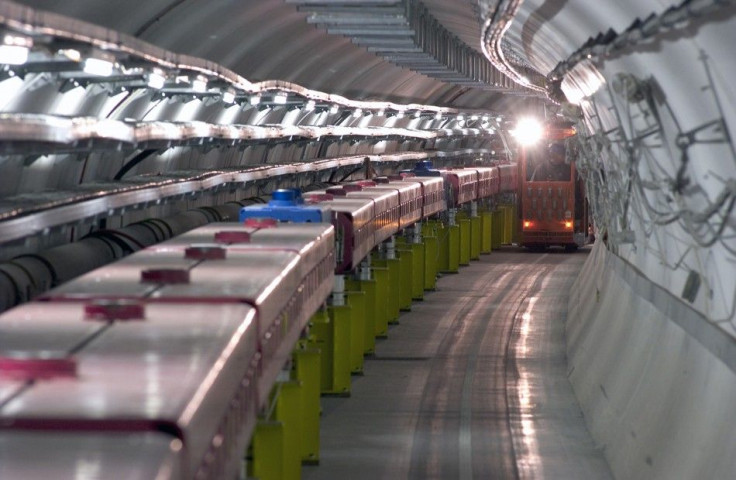Faster-Than-Light Neutrinos Would Not Necessarily Prove Einstein Wrong

The physics community was rocked last week when the OPERA (Oscillation Project with Emulsion Tracking Apparatus) team working at Gran Sasso in central Italy announced that preliminary findings seemed to suggest that they had observed subatomic particles traveling faster than the speed of light. For three years, the team of nearly 200 European scientists has collected data on neutrinos traveling underground from the Super Proton Synchrotron (SPS) accelerator near Geneva, to Gran Sasso. According to the team, the neutrinos were observed to have traveled the distance of about 450 miles in less time than it would take a light beam - disproving, some have said, Einstein's Special Theory of Relativity.
The announcement was predictably greeted with much skepticism. The feeling that most people have is this can't be right, this can't be real, said James Gillies, a spokesman for CERN, which hosted the portion of the experiment in Switzerland. Jim Al-Khalili, professor of physics at Surrey University in the U.K. told London's Telegraph that he would eat [his] boxer shorts on live TV if the results of the experiment proved correct. Most of the scientific world maintains that it is highly unlikely, though some, such as John Costella, a senior data analyst at Intelematics Australia who holds a PhD in theoretical physics, have been won over by the evident purity of OPERA's analysis.
The team itself seems unsure of what to make of its findings. Its obvious bemusement with its own findings is evident in the final paragraph of its report: Despite the large significance of the measurement reported here and the stability of the analysis, the potential great impact of the results motivates the continuation of our studies in order to investigate possible still unknown systematic effects that could explain the observed anomaly. We deliberately do not attempt any theoretical or phenomenological interpretation of the results.
The team is requesting that other researchers to independently verify their findings, which will likely take months, if not years.
The particles - known as neutrinos and sometimes referred to as ghost particles - have been the subject of much scrutiny for the peculiar manner in which they pass through matter unimpeded.
They also contain an infinitesimal amount of matter. According to Einstein's theory, this fact should render faster-than-light, or superluminal, travel impossible for the tiny neutrino. For a particle with mass traveling at subluminal speeds to accelerate to the speed of light would require an infinite amount of energy and is therefore theoretically impossible.
What many are overlooking, however, is that acceleration may not be necessary. According to Amir D. Aczel, a researcher at the Center for the Philosophy and History of Science at Boston University, the possibility exists that neutrinos are in fact part of the hypothetical group of particles called tachyons, which travel at speeds faster than that of light. If this is so, then it would carry with it its own set of ground-shaking implications - such as the conceptualization of mass and even the possibility of time travel - but would leave the Special Theory of Relativity intact. Until the research is confirmed independently, however, physicists will continue to resist findings that seem to contradict the theory that has been so long a fundamental underpinning of our understanding of the universe around us.
© Copyright IBTimes 2024. All rights reserved.




















